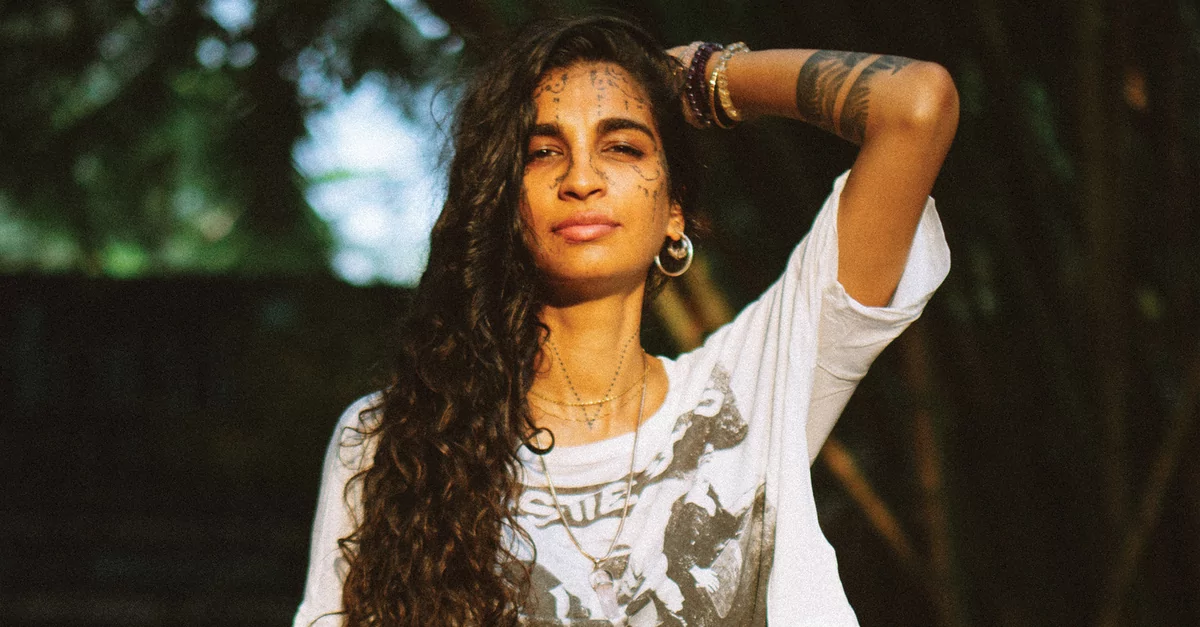
Kiss Nuka: tilting the scales
“The pandemic gave me the opportunity to spend that time with myself and really evaluate what was important,” she says. “And so then I decided to cut everything off, and put all my focus and energy into Kiss Nuka.” It was a gamble, but one that appears to be paying off. Kiss Nuka’s emergence comes at a time when India’s dance music scene is in rude health. Though Goa has always been part of the global stage when it comes to electronic music, elsewhere in the country, producers and DJs are rising to the fore.
Still, she says, “There’s a ceiling. There’s not a lot of financial support for independent artists. It hasn’t been so easy in the past to break through — and I think a large part of that was this expectation for artists from India to have some kind of cultural significance in terms of their sound. It used to piss me off when I first started producing music,” she grimaces. “When I would be first sharing it with people, travelling to LA, people would say, ‘Oh, why don’t you add a sitar?’ I’m not gonna add a fucking sitar, yaar [mate]! Like, don’t shove my culture down my throat. But it’s funny, because I’ve come back to it full circle, but it’s on my own terms.”
In doing so, her music melds melodic and percussive elements of Indian music with sounds from UK and US dance. Her Mixmag Lab live set in Goa from last year is euphoric to behold; you can practically feel the glowing heat of her surroundings blended into the deft traversing of genres, as she crescendos from softly melodic ambient and nods to psy- trance into heady bass, breaks and juddering footwork. The set is telling of Manchanda’s commitment to nailing her craft.
“I had learned how to produce on Logic, but when I got booked to play Mixmag, my songs were all very cinematic — and I remember having a conversation like, ‘Mixmag Lab is a dancefloor’,” she says. “And so I took two months off to learn how to use Ableton, broke down my existing tracks, and turned them into dancefloor versions.”





